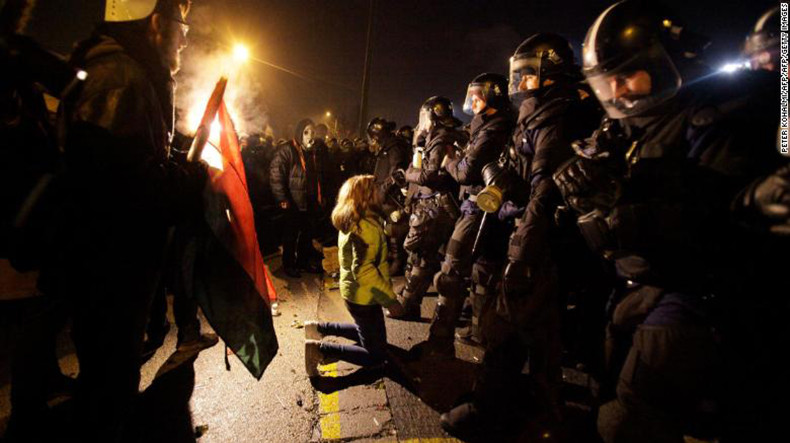
'Slave law' protests turn violent in Budapest
Another night of protests turned violent in Hungary's capital Budapest on Sunday when thousands of people took to the streets over what they call a "slave law" -- new legislation allowing employers to ask workers to take on up to 400 hours of overtime a year.
Clashes with police began when protesters arrived at the headquarters of state-run television station MTVA and tried to storm the building, CNN reports, citing its affiliate ATV Hungary.
Video and images show officers in riot gear firing tear gas into the crowd during the confrontation. Live-streamed video posted by ATV Hungary showed reporters trapped in a crowd of protesters unable to move, as well as people crouched on the ground temporarily blinded by the tear gas.
The demonstrations began Wednesday, after Hungary's Parliament passed legislation pushed through by Prime Minister Viktor Orban's hardline Fidesz party.
The government told CNN that the "voluntary changes to working hours" were "in the interest of the workers" and would allow people to work and earn more.
Hungarian law previously permitted businesses to demand up to 250 hours overtime annually.
Parliament also passed a second controversial law Wednesday that will create a new system of courts in the country. They will be overseen by the justice minister and handle cases concerning "government business," such as tax and elections, Reuters reported.
The government told CNN that the new courts, which are set to begin operating next year, will be independent and "in line with current European approaches and standards."
But with Orban's justice minister expected to oversee the hiring of judges, rights groups warned the move will take the country further down the path to authoritarianism.
Since Orban's populist Fidesz party swept into power in 2010, and most recently won a landslide victory in April this year, it has come under increasing fire from the European Union over its crackdowns on democratic institutions.
Earlier this year, the European Parliament took the unprecedented decision to trigger Article 7 -- a disciplinary process -- against Hungary, a rarely invoked process designed to prevent member states from breaching the EU's "core values."
Newsfeed
Videos






























